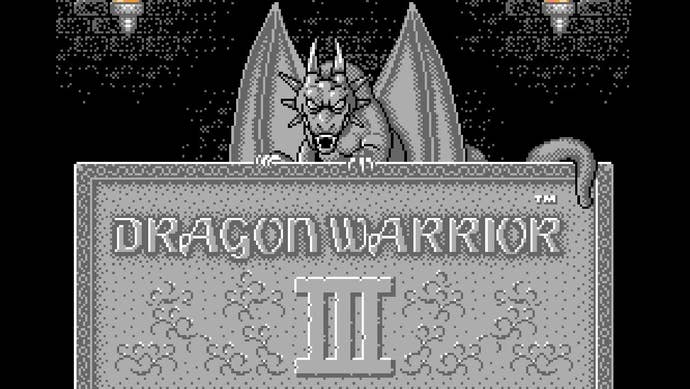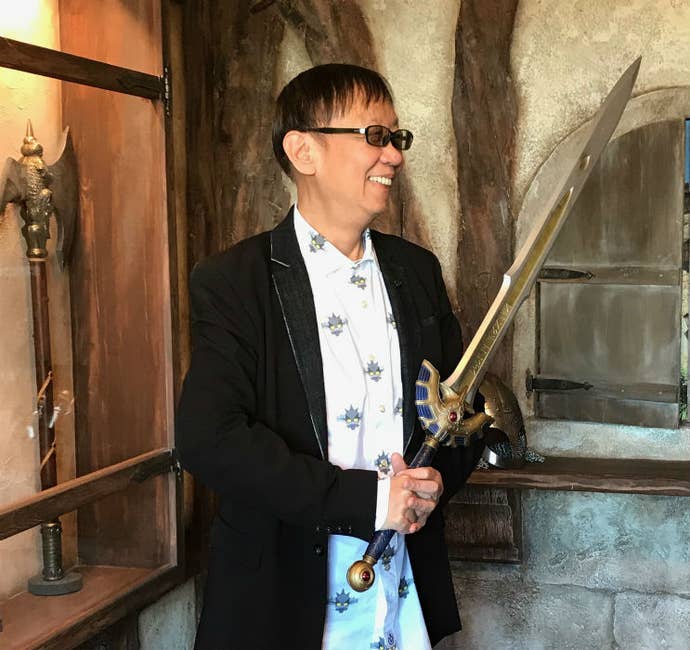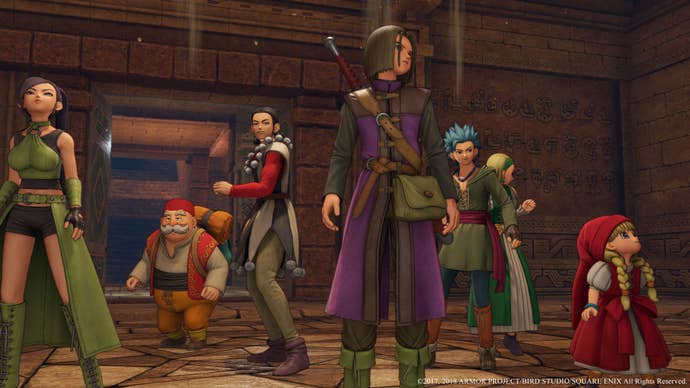The Day I Finally Met Dragon Quest's Creator
Getting to meet one of my fonts of inspiration was pretty cool. Also: How an Unreal Engine demo of Dragon Quest III helped make Dragon Quest XI.
This article first appeared on USgamer, a partner publication of VG247. Some content, such as this article, has been migrated to VG247 for posterity after USgamer's closure - but it has not been edited or further vetted by the VG247 team.
Every writer has at least one book they can point to and say, "This is the book that got me interested in writing." But pointing at a video game and saying, "This is the game that got me interested in telling stories" is a newer occurrence.
Young writers still read stories, of course, but now they also get to participate in stories via games threaded with narration. Dragon Quest (Dragon Warrior in North America) wasn't the first game to offer adventurers a story alongside their objective, but series creator Yuji Horii might be one of the first developers to realize games—RPGs in particular—have real potential as vessels for engrossing stories.
Horii became a fan of computer RPGs like Wizardry around the same time period he worked in the manga industry. He quickly realized the two mediums compliment each other well. "I thought if I could put a manga-like story on top of [a computer game], it'd really create something special," he told a small gathering of interviewers through a translator at his studio in Tokyo last month. "That's where the start for the idea of Dragon Quest came from—that idea of making the gameplay more exciting by having a proper story."

The marriage was an incredible success in Japan, where the Dragon Quest series is still part of pop culture. North America and Europe didn't embrace the union, despite Nintendo of America's efforts to put Dragon Warrior directly in our hands. But the Dragon Quest series' English debut wasn't a total flop, either. I played Dragon Warrior as a ten-year-old, gobbled up its story of swords and dragons, and became an appreciator of Horii's vision.
I followed up with Dragon Warrior II and Dragon Warrior III, which I subsequently appropriated bits of for one of my first big school writing projects (ahem). I still have that story in a binder. It's just pages and pages of dull pencil scrawls on cheap newsprint, all held together with innumerable staples. The flayed corner of the document looks like the wall of an execution chamber at the end of a stationery uprising. It's a bad story told through atrocious handwriting, but it's there. My writing style has changed more times than I can count, but for a time, that dumb story I put together with the help of Dragon Quest III's lore was the platform I leapt from.

Having the privilege of meeting Horii 26 years later to thank him for influencing me as a writer was super-neat. His gladness at my revelation was likewise super-neat. I'll carry that iconic February moment like a shield; something to soften the blow when I fail as an adult in other departments, e.g. when I look at price tags for houses and say to myself "Holy God, I didn't even know numbers go up this high."
I won't even begin to suggest Horii and I are kindred spirits (I am but a wriggling She-Slime while he is a towering Grand Dragon), but we've both been in this industry a long time—him as a creator, and myself as (primarily) a consumer. He's seen industry trends rise and fall and rise again, making his insight invaluable. Perhaps he was feeling a little overwhelmed and nostalgic when he willed Dragon Quest XI: Echoes of an Elusive Age to recall the series' beginnings with its simple story of good versus evil, even though it's a PlayStation 4 game running on the Unreal Engine. Either way, nostalgia is the reason why Dragon Quest XI contains no trace of microtransactions or DLC.

"Dragon Quest XI is a very big game that took a lot of money to develop, so we looked into a lot of different ways of making money back on it," he said. "But in the end, there's that 'return to the roots of the series' idea. We thought in this current climate of all these games having microtransactions, we really wanted to go back to the idea of having one game you buy, and that's it."
Veteran developers sometimes get a little salty about DLC, microtransactions, and other modern industry trends when they're compared to "the Good Ol' Days," but Horii is happy he witnessed the evolution of video games. Even though his days are generally kept busy with all things Dragon Quest, he admits he spent a great deal of time with The Legend of Zelda: Breath of the Wild last year (he found all the Shrines) and his current love is Monster Hunter: World. The way he sees it, video game technology finally lets him transfer his vision straight from his brain to the digital landscape, and that's a blessing.
"The evolution of hardware is just amazing. The fact that we've come to the stage where we can do open world games is just amazing," he said. "When I was working on Dragon Quest I we originally had such a small, limited area for the whole world, a small space to explore. But now I just work with the images in my head. My vision can go straight down on the screen, and that is amazing."

In fact, Horii revealed the Dragon Quest XI team conducted an experimental fusion of the series' modern and ancient blood by rebuilding part of Dragon Quest III in Unreal Engine to make sure the engine is a good fit for Dragon Quest. Somewhere out there, there's a fully 3D demo of Dragon Quest III's opening moments (specifically, the opening town of Aliahan, the first cave, and Najimi Tower). I'm not saying I'd perform wetwork for a chance to play it, but neither am I going to end this sentence with an assurance that my knives are all safely locked up.
Dragon Quest XI is coming to PlayStation 4 and Steam this Fall. Square Enix hopes it'll be the game that finally gives the Dragon Quest series household recognition in the West, but whatever happens, the cadre that's tagged along with the series since its North American debut has no plans to abandon its travels.

